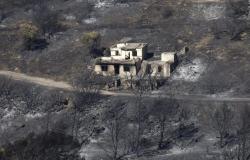(Quebec) Christian Dubé hopes to be able to deploy 500 health workers on the North Shore, Abitibi-Témiscamingue and Outaouais to put out fires in the network this summer. Furthermore, it is a “matter of days” before the first caregivers arrive, assures the minister.
Posted at 1:51 p.m.
Updated at 5:27 p.m.
“I was told that the hires would be signed tomorrow at the latest [le 20 juin], as we agreed,” argued the Minister of Health upon his arrival at the Council of Ministers. The first cohorts will be deployed on the ground in the last week of June, he added.
The North Shore will receive the first workers, then Abitibi-Témiscamingue and then Outaouais. “It’s a matter of days,” assured the minister.
The Press reported Tuesday that the establishments of the North Shore and Abitibi-Témiscamingue still had no idea of when they will welcome the first workers from the flying team, or even their number. “We received 1,200 resumes,” defended the minister, affirming that the Ministry’s teams are currently reviewing the applications received.
“I’m not telling you that there are 1,200 people who qualify,” he qualified.
However, the Minister of Health revealed that he expects some 500 workers to be deployed this summer. Cohorts of around forty nurses and beneficiary attendants will take turns, he said.
“When we have a cohort of 40 or 50 people going to the North Shore, we must ensure that there is a cohort who can relay them 10 or 15 days later,” maintained the minister.
Wires to tie, says the CSN
Despite the renewal of collective agreements, Quebec must still conclude a separate agreement with the unions for “the specific terms of application” of the flying team.
“In short, the salary conditions and benefits are already determined by the new collective agreement negotiated and signed with the Common Front,” specified the Ministry of Health and Social Services (MSSS) in an email to The Press. Christian Dubé has already stated that the workers of the flying team will receive a bonus of $100 per day, in addition to the bonuses offered in the affected regions.
The Legault government has repeatedly declared that the creation of the flying team was made possible by virtue of the new levers on mobility, negotiated in the latest collective agreements signed with the FTQ and the CSN. The FIQ is not part of the offensive since the nurses’ union still does not have an employment contract.
However, there are still wires to attach, according to the FSSS-CSN. “There are other terms that we must agree on which simply do not exist,” said President Réjean Leclerc.
He claims that the MSSS presented a first “incomplete” proposal only on Tuesday while the union “has been in demand” since mid-May.
Mr. Leclerc notes that the arrival of workers from outside with better conditions could have a demobilizing effect on existing staff.
“They should not be tempted to leave the region to return via the flying team, we must not take anything for granted, and the government is not there at all. We try to include [des modalités] so as not to undress Pierre to dress Paul,” pleads Mr. Leclerc.
The MSSS assures that the negotiation of a separate agreement “in no way pushes back the target range for the deployment of the flying team in the field” since the conditions will be applied retroactively, once the agreement has been concluded and signed.
More than 1,500 beds closed this summer
Christian Dubé once again warned Quebecers on Wednesday that the summer will be “difficult” in the province’s hospitals. Some 1,500 out of 17,000 hospital beds will be closed during the summer season due to staff shortages. Last year, this number was around 1,600, the minister said. “Yes, it’s going to be another difficult summer because there will be service corridors, but I think we have managed to stabilize the situation and that I think is encouraging to see for the population that we is going in the right direction,” he stressed. The number of appointments available in the First Line Access Counter (GAP) has been increasing since the conclusion of an agreement with family doctors, the minister also said.






